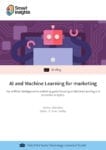Over half of the leading marketing teams report they are using AI in some way, and 57% of teams believe that AI is necessary to support their strategies and sales goals
It’s no surprise that AI technology is all the rage in nearly every marketing department these days. According to Forrester’s report on AI adoption, a shocking 94% of respondents believed that AI-driven marketing would be very valuable to their company. And yet, over 67% of participants also reported they had concerns and obstacles that stood in the way of AI adoption.
Download Premium Resource – AI and Machine Learning for Marketing
The guide aims to help businesses of all sizes to apply to their marketing, focusing on Artificial Intelligence. All businesses can now use the services we recommend to implement Machine Learning. The guide explains why, how with an actionable and practical approach.
Access the AI and Machine Learning for marketing briefing
The benefits of AI technology in marketing are crystal clear: AI can automate many processes to save copious amounts of time. It can also use Big Data collection and analytics for effective targeting and forecasting. It can even engage with customers through machine learning-powered chatbots for higher conversions and better experiences!
So why are the other half of marketing departments still not using this amazing kind of technology? Let’s talk about 4 of the biggest impediments to using AI to the fullest advantage.
1. Translating Knowledge to Strategy
According to Forrester’s report mentioned above, one of the top concerns that most marketing leaders had with AI adoption is how complicated the technology is. 35% of marketers stated that they simply did not know enough about AI to consider using it for their strategy, and 29% believed that it would be too difficult to implement into their current campaigns.
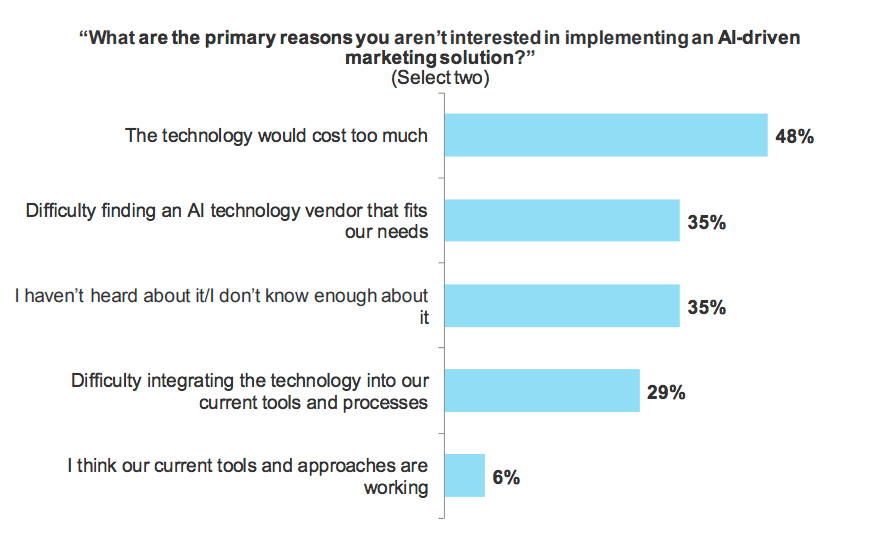
However, simply citing a lack of knowledge is certainly not a valid excuse for postponing AI adoption. Big data is growing at an alarming rate, and failing to make it a part of your sales and marketing strategy could be a step towards obsolescence. As datastreams become even more complex and the information needed to drive personalization strategies becomes more available, the more necessary it will be to translate the information and knowledge into a fruitful strategy.
Take CRM (customer relations management) systems as an example. The majority of businesses use this type of technology in some way to organize customer data and drive their marketing tactics. As cloud-based BI solutions like Salesforce have become the norm for growing businesses, you need to make sure sales and marketing teams are well trained in AI-powered CRM and how to properly equate relevant data to the customer funnel.
For instance, Salesforce recently integrated their AI-powered Einstein feature to their platform. This tool can be extremely helpful (it already powers over 475 million predictions for sales strategies each day) but only if your team is familiar with its power. With some Salesforce CRM training, your team can gain the confidence to be able to use this technology to support stronger campaigns with better results.

2. Data Security
Another top concern that marketers have with AI technology is the risk of data breaches and the security of sensitive and private information. Although AI can certainly revolutionize a business’s ability to gather and analyze loads of consumer data, compromising the security and safety of this information can set a business back significantly. After all, the frequency and magnitude of these data breaches have increased by 29% - reaching a record high of 791 in 2017. 71% of marketers list the task of ensuring data security with AI technology as a critical priority in their strategy.
While data concerns are certainly reasonable, AI has the potential to completely quell these concerns because of its powerful analytical capabilities. Many cybersecurity firms are beginning to use AI technology to not only stop current cyber attacks, but prevent future ones from taking place. The CEO of RazorSecure, one of the leading cyber-security firms, said in an interview,
“Artificial intelligence is a big part of the future of cybersecurity…One of the key areas we must solve is how to not only use deep learning for correlation detection, but also causation…We must use AI to bring a new focus and to enhance and improve our ability to manage security of systems.”
Using AI-powered customer identity and access management systems (CIAMs) can ensure that data points are kept secure by providing consumers with more control over the data they share. CIAMs also have strong firewalls and malware protection built in, and many have integrated machine learning-powered models that detect threats for stronger protection from data leaks.
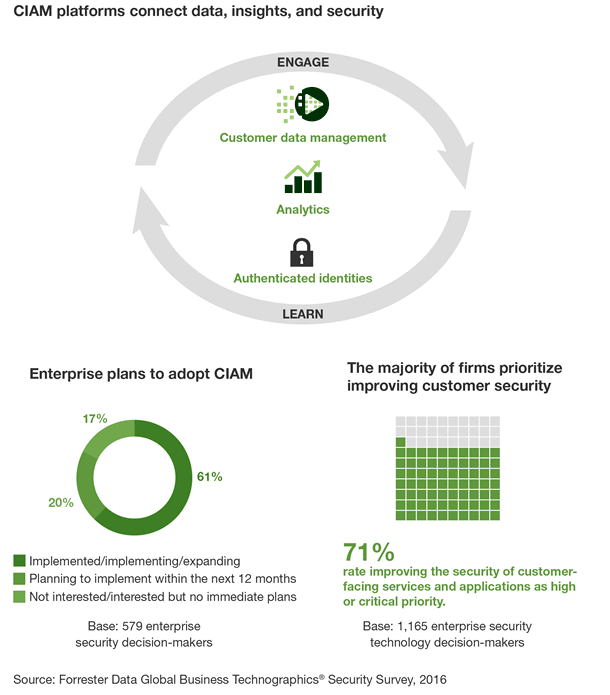
In this case, the source of the issue is also the solution. By using AI’s power for good, marketers can rest assured that the data they need for stronger strategies is safe from attack.
3. Overcoming Consumer Skepticism
Of course, the initial idea of using robots to collect consumer data and transform it into customized experiences sounds great. However, the thought of letting a computer follow people’s every online move for hyper-targeted advertising strikes fear into the hearts of many consumers. In fact, 71% do not want businesses to use AI because they view it as an infringement on their privacy.
According to PEGA’s report on the customer’s view of AI, people have split three ways just about evenly on their opinion of this technology. One-third are totally fine with it, but another third identifies themselves as being quite uncomfortable with this kind of tracking. The other third are genuinely unsure of their feelings about the concept in general.
Unfortunately, many customers are scared of AI technology, or they simply do not believe that a computer system can understand their preferences better than a human.
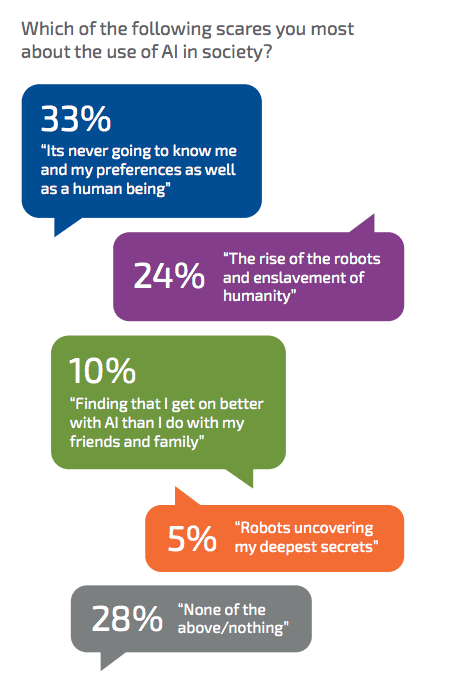
However, this is simply not the case when AI is used properly. If your team wants to use more AI technology, but is afraid of consumer backlash, transparency could be the key to convincing people to give it a try. Let your audience know exactly how AI supports a better experience by notifying them when their behavior is being tracked for things like better product recommendations or more efficient service. For example, explain that using personal data for a live chatbot could result in instant support without the customer having to explain their situation multiple times or sit on hold.
The truth is that many customers simply do not understand the implications of AI technology, especially in terms of the benefits it can provide. By clearly spelling out how your business will use AI to improve the experience, companies can begin to close the knowledge gap and build consumer confidence in this technology.
4. Adjusting to Constant Advancement
In just the past few years, AI technology has evolved and improved thanks to a multitude of advancements. These systems seem to be getting smarter by the hour - leaving many marketers fearing that they will never be able to keep up.
Unfortunately, the reality is that a basic understanding of AI tools will not be enough to support an effective strategy in the future. Only one in four businesses report that their employees have the skills and know-how needed to use AI.
As more and more businesses use this kind of technology, it will begin to affect the job market even more for marketers. The need for manual labor, along with basic cognitive skills will decrease as AI automation takes over many mundane tasks that eat into every employee’s day. However, the demand for technological skills, social and emotional skills, and high cognition will increase.
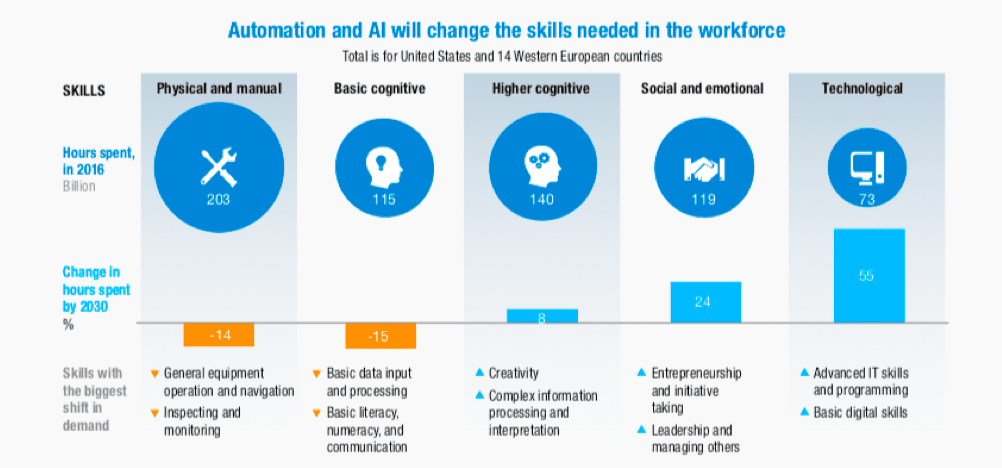
As AI becomes even more sophisticated and complex, marketers and IT professionals will need further training and expertise to use this technology to its fullest potential. Currently, much of the market is facing an AI talent shortage. Very few employees have training specific to AI integration, and those who do are in extremely high demand (most come with the salary requirements to prove it). This leaves smaller businesses with a clear disadvantage to AI integration.
Depending on the complexity of the AI systems that your marketing team decides to use, some further training may be required for optimal results. However, the truth is that experience and education in this field will trump trial and error, so companies must be on the lookout for new talent that understands the current ins and outs of AI.
Conclusion
As with most changes in life, the thought of straying from the norm and trying something new is almost always met with resistance. The same is absolutely true of AI integration within the marketing world, as teams fear that the complexity and instability of AI will cause too much of a headache. However, the benefits of AI far outweigh these excuses. If a business truly wants to push ahead and be successful in the future, they must find the solutions to these obstacles and embrace this amazing technology with open arms.
Thanks to Manish Dudharejia for sharing his thoughts and opinions in this post. Manish Dudharejia is the President and Founder of
E2M Solutions Inc, a San Diego Based Digital Agency that specializes in Website Design & Development and eCommerce SEO. With over 10 years of experience in the Technology and Digital Marketing industry, Manish is passionate about helping online businesses to take their branding to the next level.



